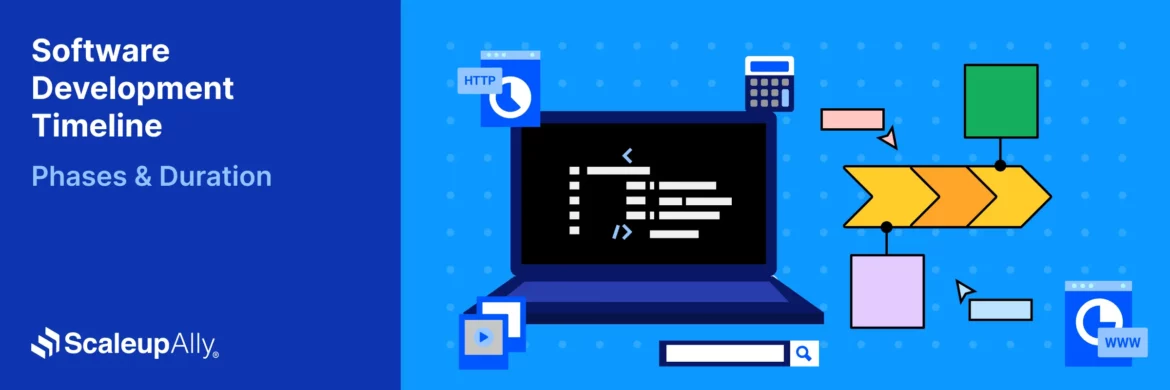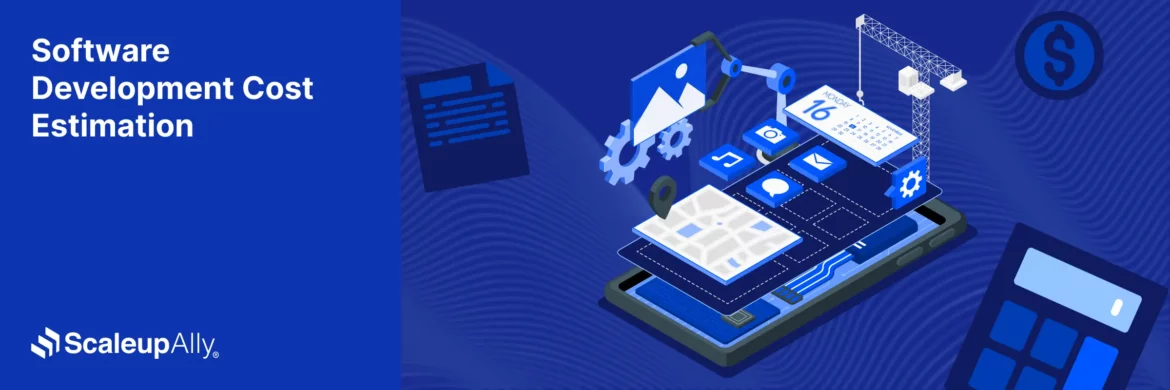
When is the Right Time to Build a Website for Your Business?
Suprabhat Sen | December 29, 2023 , 8 min read
Table Of Content
Deciding to make a website for your business is a big deal, and when you do, it can affect how well it does. If you’re running a small business or thinking about starting one, you might ask yourself, “Is there a right time to create a website for my business?”
This article is here to help answer that question by giving you some important things to think about and suggesting the best times to start working on your website.
Key Takeaways
- The right time to create a business website depends on market readiness, business stability, and strategic goals.
- A strong brand identity and clear USP should be in place before going online.
- Building a website requires proper planning around design, UX, SEO, and mobile responsiveness.
- Resource availability—both financial and time—plays a critical role in successful website development.
- Essential elements for launching a website include a domain, hosting, CMS, content strategy, and ongoing optimization.
Is There a Right Time to Create a Website for Your Business?
To determine when to make a website for your business, you must understand how it works and its market. There’s no one-size-fits-all answer, but a few things can help you decide when is the right time to go digital.
1. Business Viability and Stability
Before creating websites or using online platforms, checking if your business is likely to succeed is important. Going online is a big deal, so you want to be sure your business is solid and reliable before you take that step.
2. Market Research and Demand
Knowing who you’re trying to reach and what they want is important. Do solid research to determine what’s hot in the market, check out your competition, and see if people are into your offering. When your website matches your audience’s likes, it can work wonders for you.
3. Branding and Unique Selling Proposition (USP)
Think about making a website once you’ve figured out your brand and what makes it special. Your website is like a continuation of your brand; having a strong identity will ensure your online presence is interesting and connects with your audience.
4. Resource Readiness
Building and maintaining a website takes time and money. Make sure you have enough time to focus on this project. If you’re short on resources, figure out ways to use them smartly.
5. Technological Landscape
Keeping up with the latest trends is crucial with technology changing so fast. A website designed with modern features improves how users interact with it and makes your business look more trustworthy.
When Should You Make a Website for Your Business?
The decision to create a website should be a proactive choice based on a careful look at how ready your business is and what the market is like. Before taking this step, consider these things as well:
1. Alignment with Business Goals
Your website needs to match your business goals perfectly. Whether you want to make more people aware of your brand, grow your customer base, or make it easier for people to buy from you online, a great website helps you do all that.
2. Strategic Timing
Picking the right time might not have a one-size-fits-all answer, but it’s important. For example, launching a website simultaneously as a new product or service can make a bigger splash and get noticed immediately.
3. Adapting to Consumer Behavior
Keeping an eye on how consumers behave is important for your online success. If the people you want to reach are using the internet more for finding info and buying things, it could be a good idea to put money into a website.
4. Evolution of Industry Practices
Stay updated on what’s happening in your industry. If your competitors are improving their online presence or if customers now expect businesses like yours to have a website, it’s a clear sign that you should do the same.
Things to Consider Before Building a Website
Before you start building a website, planning carefully and considering different factors is important. Instead of jumping into the technical stuff right away, take some time to consider these aspects:
1. Purpose and Functionality
Ensure you know exactly what your website is for and what you want it to do. Whether selling stuff, sharing info, or telling your brand’s story, being clear about its purpose helps you build it correctly.
2. Target Audience
Knowing who you’re trying to reach is important when making a website that people will find easy to use. Ensure everything from what you say to how it looks and works is right for visitors.
3. User Experience (UX) and Design
You must have a smooth user experience, no ifs, ands, or buts. Put your money into a design that’s easy to use and grabs people’s attention, leading them smoothly through your site. When your site is easy to get around and looks good, it makes users happy.
4. SEO Optimization
Making sure your website is easy to find on search engines is important. You can do this by using the right keywords, ensuring your site loads quickly, and writing great meta descriptions. This will help improve your website’s SEO and make it more visible to people searching online.
5. Mobile Responsiveness
Most people use mobile devices to go online. So, ensuring your website looks good and works well on all screen sizes is important. A website that’s easy to use on phones and tablets will appeal to more people, and search engines like Google will like it too.
What Do You Need to Create a Website?
Since we’re considering making a website, let’s talk about what you need to do and the important things to consider while starting out:
1. Domain Name and Hosting
Picking a domain name that matches your brand and getting dependable hosting are crucial first steps. Aim for a domain name that’s easy to recall and fits your business’s image.
2. Content Management System (CMS)
Pick a CMS that matches your technical skills and website needs. Platforms such as WordPress, Shopify, or Wix provide easy-to-use interfaces suitable for people with different levels of technical know-how.
3. Content Strategy
Creating an effective content plan means considering everything on your website, like the main pages and blog articles. Ensure your content connects with your readers and helps you achieve your business aims.
4. Design and Development
Making sure your design looks professional and catches the eye is important. Whether you go for ready-made templates or custom designs, make sure they match your brand style.
5. Testing and Optimization
Ensure you thoroughly check your website to see if everything works, looks good on different devices, and is easy for people to use. Use user feedback and data about how people use your site to improve it over time.
How Can ScaleupAlly Help?
At ScaleupAlly, we’re all about helping businesses thrive online. Through our custom web development services, we create eye-catching websites and build strong e-commerce platforms tailored to your goals.
Our team of professionals are always on a look out to work work on exciting new projects and surpasses industry expectations. Contact us so we can be of service to you and your business.
Conclusion
Making a website for your business is a smart move that can boost your brand. But remember, there’s no one-size-fits-all answer to the best time. It depends on what’s going on with your business and what you want to achieve.
Frequently Asked Questions
Q: Do I need technical expertise to create a website for my business?
While some technical knowledge is beneficial, many user-friendly platforms, like WordPress and Wix, cater to various skill levels. You can also consider hiring a ScaleupAlly for professional assistance.
Q: What ongoing maintenance does a website require?
Regular updates, security checks, and content refreshes are essential for website maintenance. Ensure your CMS, plugins, and themes are up to date to safeguard against security vulnerabilities.
Q: How do I ensure my website is secure?
Implementing an SSL certificate, choosing secure hosting, and keeping software up to date are crucial for website security. Regularly back up your website to protect against data loss.
Q: Is it necessary to hire a professional for website design?
While pre-designed templates are an option, a professional designer can tailor the website to your brand, ensuring a unique and visually appealing online presence.
Related Blogs

Top 20 Emerging Technologies of 2026
Discover the top 20 emerging technologies of 2026. Explore which innovations are driving change across healthcare, finance, manufacturing, and other crucial industries.
ScaleupAlly Team
Dec 16 ,
9 min read

Software Development Timeline: Phases, Duration & Estimation Guide
Understand the software development timeline with phase durations, key factors, hidden delays, and practical methods to estimate project time.
Suprabhat Sen
Nov 29 ,
16 min read

Software Development Cost Estimation Guide: What’s Included & What Affects the Price
Explore software development cost components, major pricing factors, and practical estimation methods to plan your project accurately from start to finish.
Suprabhat Sen
Nov 29 ,
14 min read


